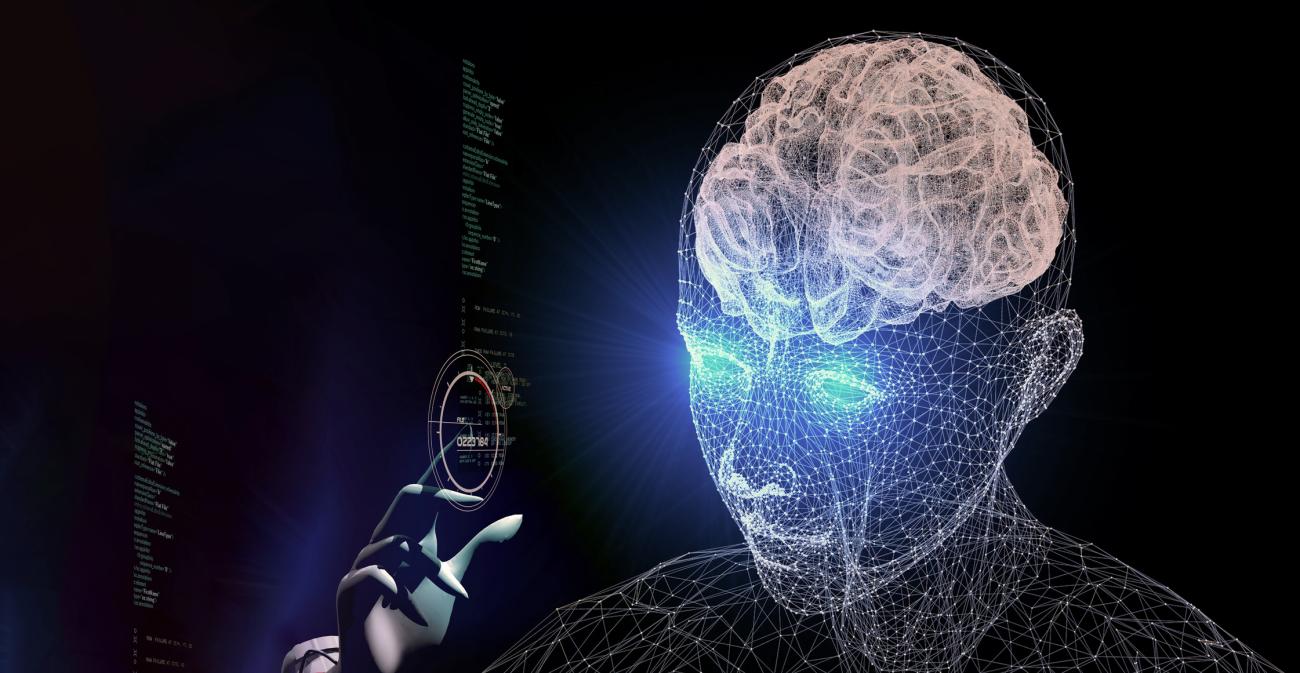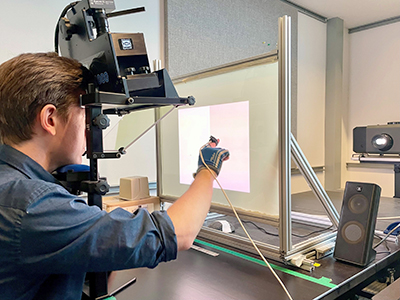
The ability to follow an object with one’s eyes and hands can reveal clues valuable to understanding disease and providing patient care.
Humans are excellent at following objects with their eyes, such as a ball. However, we are less refined at tracking accelerating objects. New research led by Vancouver Coastal Health Research Institute researcher Dr. Miriam Spering provides a clearer picture of the mechanisms behind this very human hindrance.
“Motion tracking is important when crossing a street and anticipating the movement of oncoming traffic, as well as when walking down a sidewalk and avoiding bumping into other people,” notes Spering. “The results of this study provide further evidence that the human visual system has a hard time observing and reacting to accelerating objects.”
“Our study shows systematic errors in manually intercepting an accelerating object that has briefly disappeared. We think that the insights we can gain from data like this can help us develop biomarkers for certain disorders that affect hand-eye coordination.”
Published in the Society for Neuroscience’s eNeuro journal, the study involved Spering’s research group and was directed by PhD student Philipp Kreyenmeier. Their research involved an experiment with 16 adult research participants aged 19 to 37 years with normal or corrected-to-normal vision and no history of neurologic, psychiatric or eye disease.

Participants were seated at a computer and asked to track and anticipate the movement of a small black disk that traversed across the screen and behind a blind spot at a fixed speed, or that increased in speed at different rates.

The research shows that, regardless of how long participants had to track an object, they failed to accurately gauge target acceleration when the object passed behind the blind spot. Instead, participants based their prediction on the speed the object was travelling before it disappeared behind the blind spot.
“Even if our brain tells us that the object is accelerating or decelerating, our motor action is not adjusting.”
“By understanding these sensory processing errors, we are getting a bigger picture view of how sensory impairments might contribute to motor impairments. This knowledge could be used for the development of biomarkers of progressive diseases that affect motor skills, such as Parkinson’s disease, as we have recently done.”
The research team also found that eye and hand movements aligned, both landing several hundred milliseconds later for accelerating targets and earlier for decelerating targets. This means that both eye and hand movements were unable to detect target acceleration.
Tracking objects is a complex task that could help indicate disease
Human beings have evolved to see and perceive movement to aid in hunting and navigating our environment. However, the perceptual system we inherited from our primate ancestors is largely insensitive to acceleration.
To date, there has been a lack of understanding about how modern humans transform our visual perception of acceleration into motor skills, such as moving out of the way of an oncoming vehicle. Spering explains that the reason for this is a complex neural system that interprets information from the eyes to the optic nerve in the brain, all the way to the visual cortex located at the back of the brain.
Many areas of the brain then go into action, including the medial temporal cortex (MT), the motion processing centre that interprets the speed and direction an object is travelling.
“Whereas area MT can easily detect speed and direction, many, many nerve cells and complex computations in MT are needed to figure out if an object is accelerating,” says Spering.
“This also makes it possible for researchers to use eye movement to help interpret how well someone is seeing and tracking the movement of an object.”
To then interact with the object, information travels from MT to the prefrontal cortex where it is combined and transformed into a motor command that is sent down to the brainstem and cerebellum to, for example, move a hand to catch a ball.
“When tracking an object, people often shift their gaze to where they anticipate the object will be,” notes Spering.
The region of the brain responsible for coordinating a corresponding action to intercept an object also retains memories of how objects are supposed to move. For example, research has shown that people more accurately track and predict flyballs that move naturally with gravity than balls that do not.
A better understanding of the predictive pathways of hand-eye movements to track accelerating objects could support further scientific research and understanding about disease diagnosis and severity, says Spering.
“This research can help explain the mechanisms that underlie healthy vision versus pathological vision to better understand the mechanisms and potential indicators of disease.”


